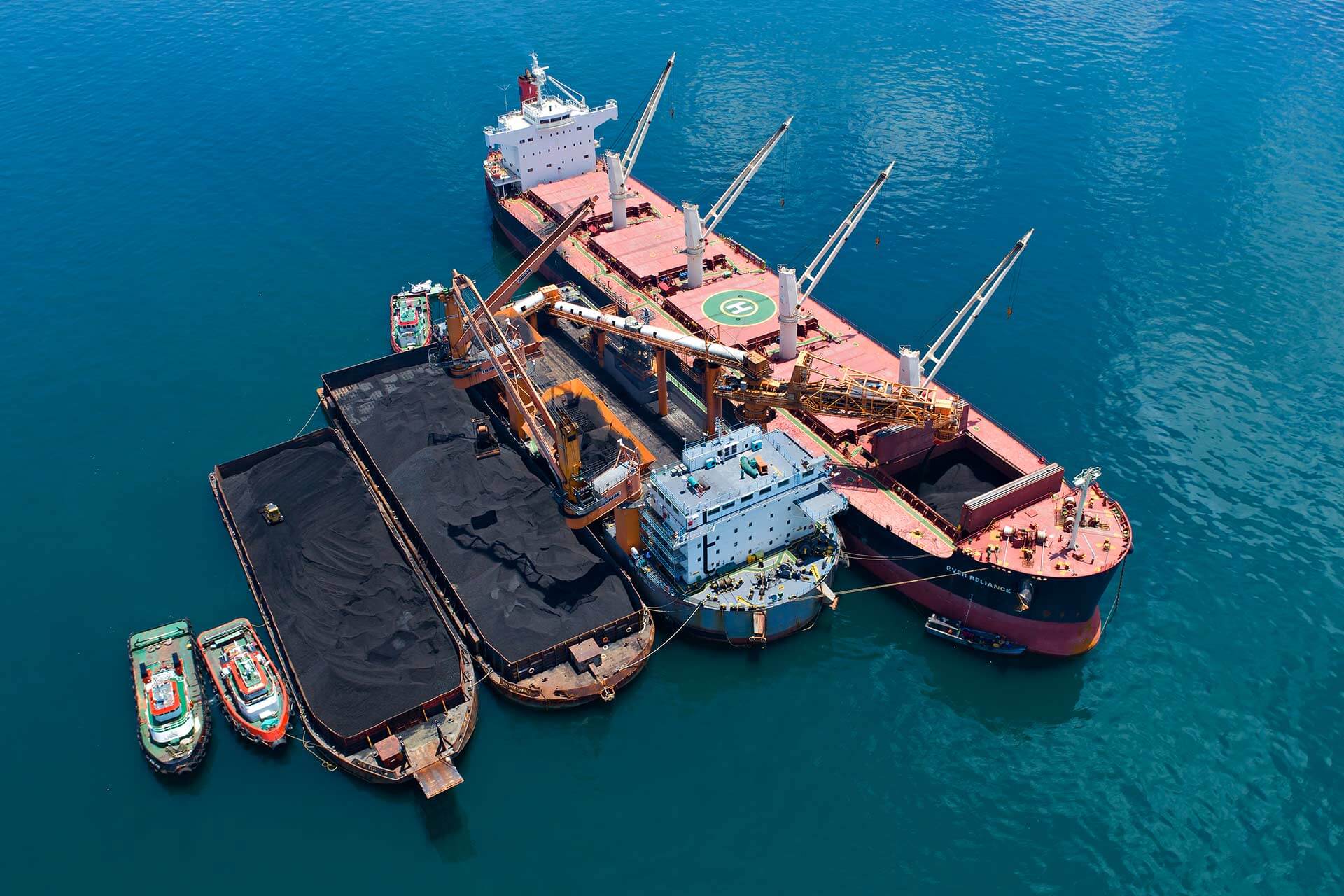
For many years, shipping has been perceived to operate ‘under the radar’, as a silent polluter, but no longer. Pressure is now on every element of the shipping supply chain to transform and improve sustainability - from the first to the last mile. The dry bulk transhipment and logistics market is no different. Transparency and access to data is at the heart of developing the pathway to sustainability. There must be a baseline from which to operate in terms of determining current emissions output, in conjunction with actively monitoring and analysing the performance of operations to generate insights, from which the best decisions can be made to improve efficiencies. However, within this specialized dry bulk transhipment market, there are no specific mandatory requirements by the International Maritime Organisation (IMO) or the European Union (EU) to include offshore floating terminals (OFTs) within IMO DCS (Data Collection System) or EU MRV (Monitoring Reporting and Verification) regulations. This is despite the fact that an OFT can emit circa 3,000 to 10,000 tonnes of CO2 every year. The onus and responsibility are therefore very much on individual operators, and as a logistics solutions provider, it is something that we take very seriously. This is why Rocktree has recently engaged with the leading classification society, RINA, to develop a management system to monitor the air emissions of the Rocktree fleet, validating and submitting to RINA the relevant data of our OFTs for verification. This will create the important baseline from which our sustainability strategy can be driven and measured. RINA will verify that Rocktree procedures are designed to improve the efficiency of the fleet and will validate yearly units’ CO2 emissions.
Secondly, there must be an understanding of the principle that efficiency gains and improving processes within operations is a key component in driving sustainability, as well as delivering a stronger commercial performance and competitive advantage. This requires a constant monitoring of the performance and condition of assets, and a real time visibility to provide data and insights so that informed and optimal decisions can be made to maintain and streamline operations, increase efficiencies, and reduce running costs as well as emissions.
To deliver this, Rocktree is establishing a Remote Operations and Technology Centre (ROTC) in Singapore to automate our data and performance metric collection processes in order to understand the performance of our vessels better. To achieve this, it is critical that we collaborate with the right experts in the industry, which is why we are partnering with a number of leading companies across key areas that define the new ROTC. Firstly, the ROTC will utilize Kongsberg’s Kognifai Maritime Ecosystem to facilitate the capture and aggregation of data from our vessels in an efficient and secure way. Liebherr is also being brought on board to implement its LiDAT Liebherr Data Transmission and Positioning System, enabling the online collection of machine data and the supervision of cargo operations to report on machine usage and their condition. The ROTC will also include oil condition monitoring sensors (from Leo Maritime) to enable real time and accurate analysis. By increasing fuel efficiency, reducing the downtime and repair costs of machinery, and reducing waste oil, we can further improve the safety and sustainability of our operations.
We will also use a custom designed Real Time Fuel Monitoring Solution, incorporating Coriolis Fuel flow meters for each source of emission. The system is designed to have a robust and reliable fuel management control in place to accurately measure, monitor and report fuel consumption during their day-to-day operation, as well as refuelling operations.
Finally, improving the efficiencies on how we manage employees’ time is also an important aspect of the ROTC, and we will look at how we can reduce the need for HQ staff to physically travel to the vessels to perform maintenance and supervisory jobs. This is where modern technology has a significant role to play, and we will be utilizing HoloLens - the mixed augmented reality smart glasses, which use multiple sensors, advanced optics and holographic processing to display information and simulate a virtual world of vessel machinery for shore-based staff.
The anticipated net benefits of the Rocktree ROTC are clear. By creating a transparent and data rich environment whereby vessel operations can be constantly monitored and analyzed, we can ensure that our assets are continually performing at their peak efficiency. Not only will this reduce fuel consumption and associated costs and emissions, it also has the potential to increase the amount of cargo volume that is handled, and further improve loading performance for the benefit of our customers.
It is very clear that the shipping industry is at a point of rapid transformation, and under significant pressure to focus on sustainability and improve its impact on the environment. There will be many in the industry who view this roadmap to decarbonization as an irritating distraction from ‘the day job’, and yet another forced investment. Given the hardships and volatility within the market this may be an understandable sentiment. However, it is also clear that investment in innovation as a means of driving productivity, enhancing operational performance, as well as improving sustainability, is a route to not only a better environment, but also commercial gain and a better business as well. That is truly a win/win scenario that all organizations should look to seize in order to reap the benefits of a market in transition.